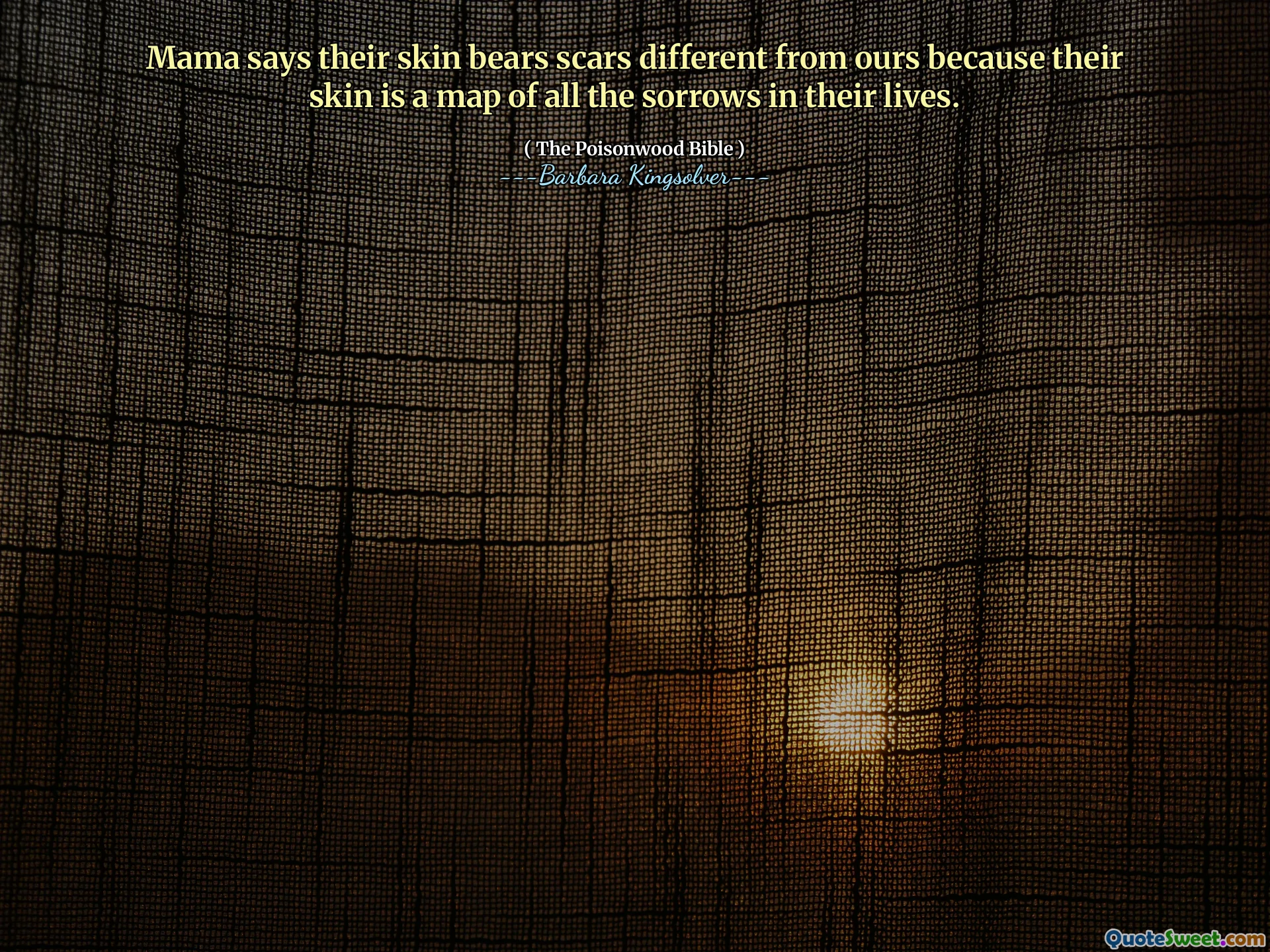
Mama says their skin bears scars different from ours because their skin is a map of all the sorrows in their lives.
In Barbara Kingsolver's "The Poisonwood Bible," the narrative explores the impact of personal and communal suffering through the metaphor of scars. The character's reflection on their skin suggests that visible marks are not just physical but rather an indication of the emotional and historical burdens carried by individuals. This perception highlights the profound connection between personal experiences and identity. Moreover, the concept of skin as a "map of all the sorrows in their lives" emphasizes how trauma shapes people, both visibly and invisibly. These scars serve as reminders of past struggles and resilience, encapsulating a story that influences an individual's present and future. This idea encourages a deeper understanding of empathy, as it acknowledges the multifaceted nature of suffering that transcends mere appearance.
In Barbara Kingsolver's "The Poisonwood Bible," the narrative explores the impact of personal and communal suffering through the metaphor of scars. The character's reflection on their skin suggests that visible marks are not just physical but rather an indication of the emotional and historical burdens carried by individuals. This perception highlights the profound connection between personal experiences and identity.
Moreover, the concept of skin as a "map of all the sorrows in their lives" emphasizes how trauma shapes people, both visibly and invisibly. These scars serve as reminders of past struggles and resilience, encapsulating a story that influences an individual's present and future. This idea encourages a deeper understanding of empathy, as it acknowledges the multifaceted nature of suffering that transcends mere appearance.











